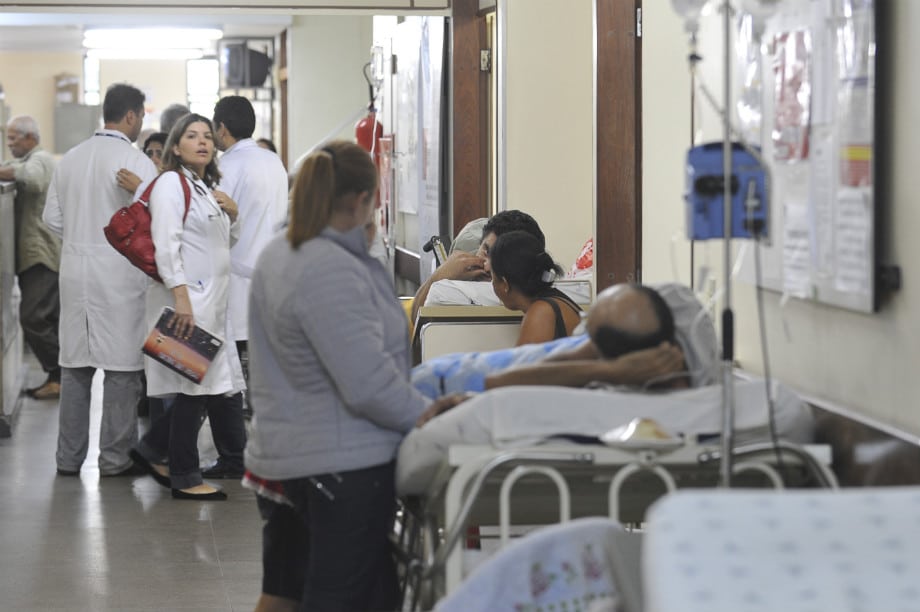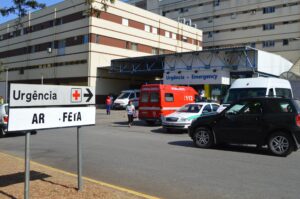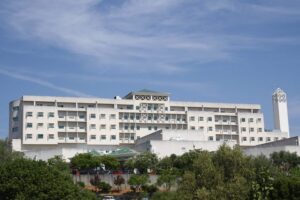Order of Physicians backs boycott; Minister concedes it’s “perfectly natural”
Following the government’s decision to impose limitations on non-resident foreigners using the SNS public health service (to save time, money and manpower), more than 800 health professionals have come out and say they refuse to comply.
The Order of Physicians has said it backs the boycott, while health minister Ana Paula Martins has said she ‘gets it’: there will always be people who don’t agree with decisions. They can exercise their civil rights, she tells Lusa – suggesting it is “perfectly natural” that some health professionals will see limitations as ‘discriminatory’.
This is the latest ‘upset’ in the health system that otherwise appears to be dealing with the challenges of the coldest season relatively well.
The Open Letter, signed by a total of 840 health professionals, “including doctors, nurses, psychologists, social workers, diagnostic and therapeutic technicians and other professionals” followed the amendment to the Basic Health Law approved last week following the government’s announcement that it wanted to control abusive use of the public health system.
For the signatories, however, the changes condition access for immigrants in an irregular situation. Thus, they pledge “to continue to provide care to all people, without discrimination, considering that protecting the health of the targeted community, in the context of the ethics and deontology that govern (their) professions, could justify actions of civil disobedience“.
Accusing the government of promoting inequalities and hindering the fight against communicable diseases, the signatories recall that in France a similar measure did not go ahead due to the opposition of 3,500 doctors.
“Patients from here and elsewhere, our door is open to everyone. And it will remain so,” they promise.
For the signatories, the change approved by the centre-right government and CHEGA, violates the constitution and international treaties and “will exacerbate inequalities, overload accident and emergency departments and jeopardise public health by hindering access to safe healthcare and the prevention and treatment of communicable diseases”.
Speaking to Lusa, one of those who signed their names, doctor André Almeida, explained that health professionals cannot sign up to a new law that is “discriminatory and attacks the principles of ethics and deontology” by turning people away from the SNS.
The implementation of these rules will lead to “people who work, who are net contributors, both from a tax point of view and for social security, being left without assistance and the same also applies to their families, even including pregnant women and children”, said the doctor from the Local Health Unit of São José in Lisbon.
“We think this is unacceptable” and “we hope that this law is repealed by the sovereign bodies and that it doesn’t pass through the sieve of the Presidency of the Republic” (‘the sieve’ meaning signatories are hoping the president does not promulgate the law).
In his daily work, André Almeida deals with migrants who have been in the country “for a very long time, but due to procedural delays at AIMA (the Agency for Integration, Migration and Asylum) and formerly at SEF (the Immigration and Borders Service), their situation has not been regularised”, explains Lusa.
As a result, these immigrants already “face a series of obstacles in accessing the health system”, but with “this change to the law, these people are going to be cut off from essential assistance”, particularly in accident and emergency departments, Dr Almeida explained.
According to a statistical survey, “the non-resident population in Portugal that uses the SNS is minimal”, write the signatories, recalling that this type of measure in other countries shows “the negative impacts in terms of public health, mortality and economic costs”.
In the case, for example, of Spain, “the exclusion of undocumented migrants from the health system in 2012 resulted in an increase in contagious diseases, higher mortality and high costs due to the overload on accident and emergency departments,” forcing the government to review the law in 2018.
Source material: LUSA



















